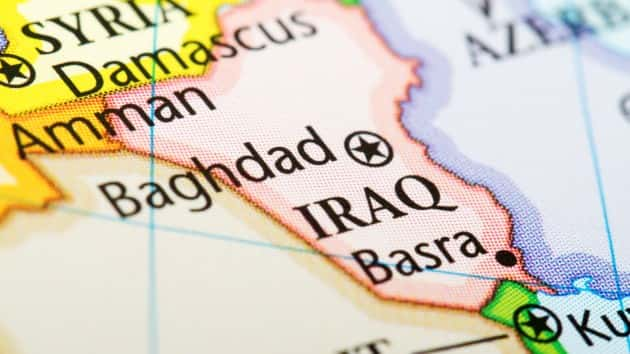
CT757fan/iStock
 CT757fan/iStock(WASHINGTON) — The U.S. State Department has ordered all non-emergency government employees to leave Iraq as soon as they can amid tensions with Iran and warnings about possible threats to American interests.
CT757fan/iStock(WASHINGTON) — The U.S. State Department has ordered all non-emergency government employees to leave Iraq as soon as they can amid tensions with Iran and warnings about possible threats to American interests.
The order comes after U.S. officials told ABC News last week there were “clear indications” Iranian and Iranian proxy forces were preparing for a possible attack against U.S. forces at sea and on land, including in Iraq.
The U.S. Embassy In Iraq issued a statement that called these ordered departures, “appropriate given the current security conditions” but did not detail the nature of any threat and whether there was anything new or different from the threats of attacks last week that Secretary of State Mike Pompeo said “were imminent.”
“We do not make these decisions lightly,” the statement said. “The safety and welfare of US government personnel and US citizens is the department’s highest priority. We are confident in the Iraqi security services determination to protect us, but this threat is serious and we want to reduce the risk of harm. We remain committed to partnering with Iraq to advance our mutual interest.”
Americans at the embassy in Baghdad and at the U.S. consulate in Erbil have been asked to depart the country by commercial transportation and are advised to monitor local media for updates, review personal security plans and review the complete travel advisory for Iraq.
Visa services at each location have been suspended.
Pompeo, just back from a trip to Russia to discuss Iran with President Vladimir Putin, is scheduled to brief President Donald Trump on Wednesday afternoon at the White House.
At a joint news conference Tuesday in Russia with Foreign Minister Sergey Lavrov, Pompeo said that the U.S. fundamentally does not see a war with Iran and that recent U.S. actions were only intended to force Iran to stop its campaign of assassinations in Europe and support for groups such as the Houthi rebels in Yemen.
“Our position hasn’t changed,” Pompeo said. “We’ve made clear to the Iranians if American interests are attacked we most certainly will respond in an appropriate fashion.”
The secretary of state made a surprise, last-minute trip to Iraq about a week ago as tensions between the U.S. and Iran have escalated.
Pompeo visited two days after plans were announced to move an aircraft carrier strike group into the region ahead of schedule.
Trump on Tuesday dismissed a New York Times report that the administration is reviewing a plan to send as many as 120,000 troops to the Middle East if Iran attacked U.S. forces as “fake news.”
But even as the president sought to brush off the report, he added that he would “send a hell of lot more” troops if he did have to respond to a military attack from Iran. Trump has said he would like Iran to call him to negotiate.
Late Sunday night, the White House announced that the USS Abraham Lincoln and a bomber task force were being deployed in response to unspecified “troubling and escalatory indications and warnings” of a threat from Iran, although the Pentagon later confirmed the aircraft carrier was already scheduled to stop in the region.
“This would be an effort to take American forces out that continue our campaign against ISIS,” Pompeo said Tuesday of the threat, after departing Baghdad. “These were attacks that were imminent. These were attacks that were going to happen fairly soon. We’ve learned about them, and we’re taking every action to deter them.”
However, Maj. Gen. Chris Ghika, a senior officer in the U.S.-backed coalition fighting the Islamic State group told reporters at the Pentagon that there has been “no increased threat from Iranian-backed forces in Iraq and Syria.”
This statement prompted a public rebuttal by U.S. Central Command which said in a statement that Ghika’s remarks “run counter to the identified credible threats” from Iranian-backed forces in the Mideast. The Central Command said the coalition in Baghdad has increased the alert level for all service members in Iraq and Syria.
“Central Command, in coordination with Operation Inherent Resolve, has increased the force posture level for all service members assigned to OIR in Iraq and Syria. As a result, OIR is now at a high level of alert as we continue to closely monitor credible and possibly imminent threats to US forces in Iraq,” U.S. Navy Capt. Bill Urban, lead spokesman for U.S. Central Command, said in the statement.
It was just about a year ago that Trump pulled the U.S. out of the nuclear deal with Iran.
Copyright © 2019, ABC Radio. All rights reserved.